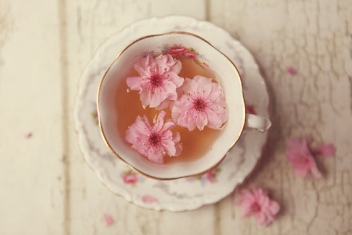I found a blog post comparing about black tea and herbal tea. For me, I always support Real Tea. Therefore, as I mention before even herbal tea is not consider as “TEA”, but herbal tea still have other benefits.
Black tea offers the benefit of reversing cardiovascular disease if you drink it plain and long term. Herbal teas each offer their individual benefits ranging from aiding digestion, to removing nausea, to treating diarrhea and more. The role of tea in cancer prevention and boosting the immune system needs to be studied further. When it comes to deciding between black tea and herbal tea, examine your individual needs. You may want to incorporate black tea into your diet regularly but moderately because of its caffeine content. Use herbal teas to cleanse your system and to deal with symptoms as they pop up.
Feel free can check out the post from
http://www.fitday.com/fitness-articles/nutrition/healthy-eating/black-tea-vs-herbal-tea.html#b
They also provide lots of information about healthy eating.




